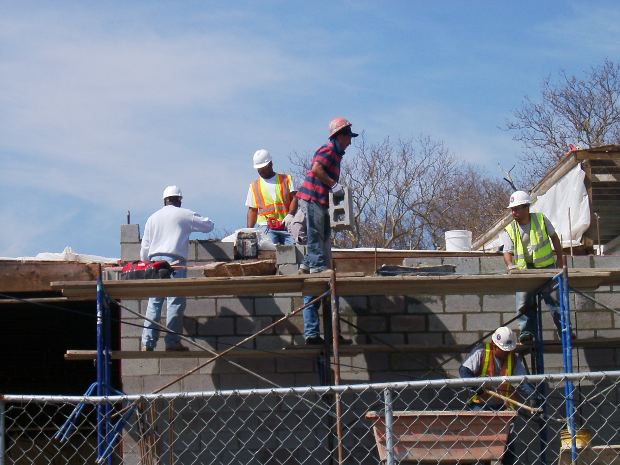 When an employee is injured at work, a certain protocol is taken to investigate how and why the accident occurred. Witness interviews are a crucial part of this protocol, and are heavily relied upon by investigators, as these testimonies provide important information that can help piece together the situation. While the purpose of investigations is not to specifically find fault for an accident, investigations are used to identify the root cause of the incident and help both employers and employees prevent similar accidents in the future. Investigations are also conducted to fulfill legal requirements, determine the costs associated with the accident, determine compliance (on behalf of the employee and the employer) with safety regulations and to determine and correct safety hazards, and to correctly process workers’ compensation claims.
When an employee is injured at work, a certain protocol is taken to investigate how and why the accident occurred. Witness interviews are a crucial part of this protocol, and are heavily relied upon by investigators, as these testimonies provide important information that can help piece together the situation. While the purpose of investigations is not to specifically find fault for an accident, investigations are used to identify the root cause of the incident and help both employers and employees prevent similar accidents in the future. Investigations are also conducted to fulfill legal requirements, determine the costs associated with the accident, determine compliance (on behalf of the employee and the employer) with safety regulations and to determine and correct safety hazards, and to correctly process workers’ compensation claims.
Conducting Witness Interviews
As a general rule, witness interviews should be conducted by experienced safety personnel as soon as possible after the accident occurs. Witnesses are typically the best source of information to determine the sequence of events leading up to the accident. Though it is standard procedure for a unit administrator or law enforcement personnel to take witness statements prior to the investigation team’s arrival, those statements should not be heavily relied upon as the sole witness statements.
Witnesses’ mental states should be taken into account when an investigator is conducting the interviews. Sometimes witnesses are traumatized or may be on medication, and thus are unable to give accurate accounts of the events. On the other hand, witnesses may be anxious to speak about the accident, and providing them with that opportunity may help them. In some cases, family members of the injured person(s) can help the investigation by offering insight into character traits or behavior patterns of the victim. To ensure that witness accounts are accurate and witnesses are being truthful, individuals should be interviewed alone. Interviewing witnesses together may cause confusion and may cause witnesses to give inaccurate versions of what happened.
The first step to conducting an interview is to explain to the witness the purpose of the investigation. Interviewers should listen carefully and take notes that do not distract the witness. A tape recorder may be used to record the witness statements, but only at the consent of the individual. Investigators should also use sketches or diagrams to help the witness better describe the accident.
Investigators should ask open-ended questions that cannot simply be answered by a “yes” or “no”. Investigators should ask witnesses to:
1. Describe in detail the accident sequence from start to finish.
2. Accurately describe the work and the conditions leading up to the accident.
3. Locate the position he or she was in and identify what exactly he or she was doing at the time of the incident.
4. Identify whether he or she noticed anything unusual prior to the accident (i.e.; unusual sounds, odors, sights, etc.)
5. Describe the conditions (weather, time of day, equipment malfunctions, etc.) that may have contributed to the accident.
6. Identify whether he or she thinks the incident could have been prevented, and how.
7. Identify any other possible witnesses to the accident.
8. Identify any additional questions or concerns he or she has about the incident.
Once the interview is complete, investigators should re-interview the witness to ensure there are no discrepancies in the witness’ account. In addition, the investigator should supply the witness with his or her own copy of the interview and have the interviewee sign a copy of the official statement.
Under Massachusetts and OSHA law, an employer is responsible for ensuring that all of his or her employees are working in safe environments and that the workplace is free of hazards that can cause injury. Employers are also responsible for making sure employees have the proper training to perform their jobs.
When a person is injured at work, he or she may be entitled to filing a workers’ compensation claim. Workers’ compensation law is supposed to guarantee benefits to workers who are injured on the job-even if it was the worker who caused the accident. In Massachusetts, workers’ compensation benefits typically include coverage of medical costs, disability payments, 60% of your average income (or greater if your injury resulted in permanent disability), compensation for permanent disfigurement or scars, retraining, and death benefits for immediate family members if the worker was killed on the job. In return for this “guarantee” workers are not allowed to sue his or her employee for any work-related injuries.
If you or a loved one was injured while on the job, call one of the seasoned Boston Workers’ Compensation Attorneys at the law offices of Altman & Altman for a free initial consultation, to discuss your workers’ compensation claim. Our team has nearly 50 years of experience handling workers’ compensation cases and we have successfully recovered millions of dollars for our clients who have been the victim of workplace injury. We manage each case with the highest level of professionalism and we are always available to answer any questions you have about your case.
 Massachusetts Workers' Compensation Lawyer Blog
Massachusetts Workers' Compensation Lawyer Blog









